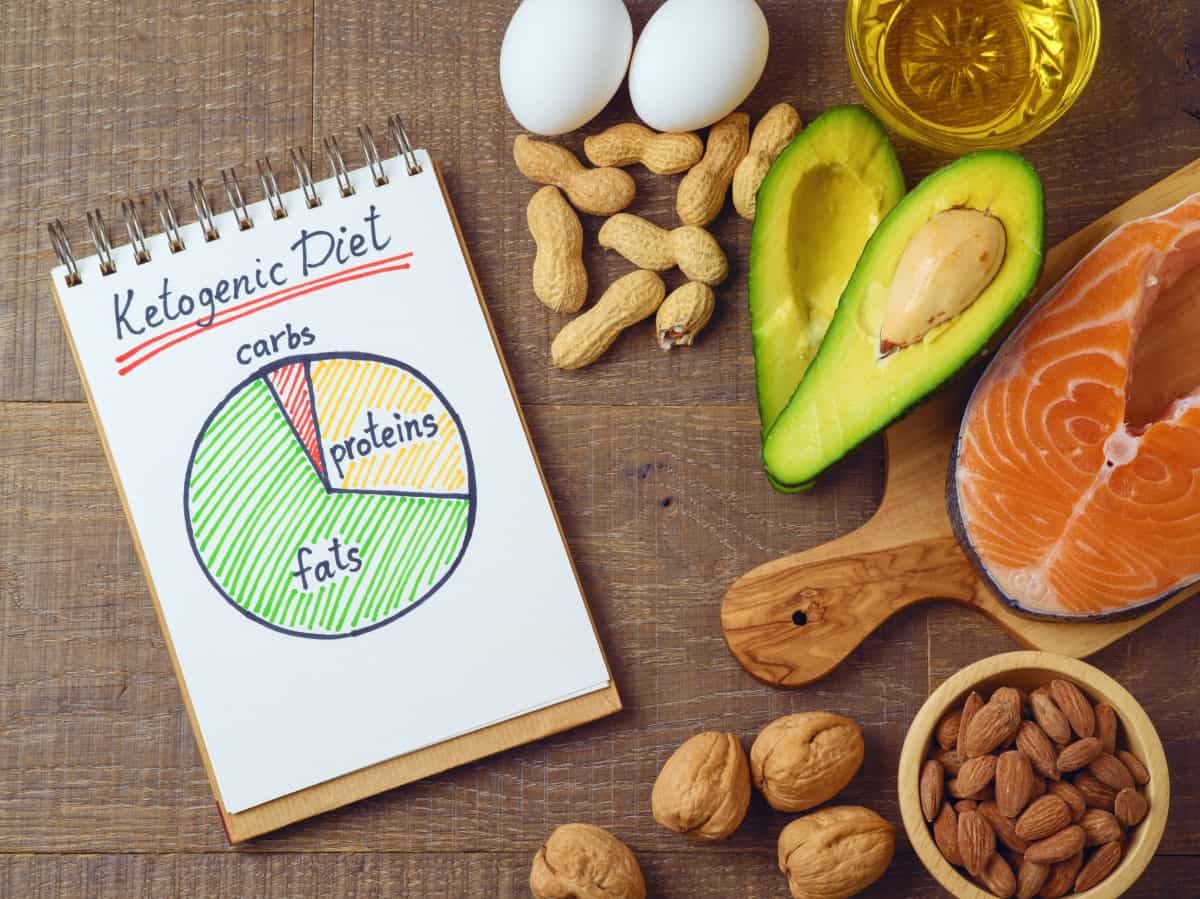The ketogenic diet has been shrouded in controversies ever since it caught the public eye. In the beginning, the keto diet was developed as an alternative to non-mainstream fasting, which had shown positive results in treating epilepsy. Recently, this popular diet captured the world’s attention when people claimed that it helped keep blood sugar levels in check. Diet regimens focused on diabetes are, more often than not, focused on weight loss. It then seems hardly believable and counterintuitive that a high-fat diet is an option. This article is here to bust myths and affirm facts to help you understand the link between the ketogenic diet and diabetes.

What does the ketogenic diet comprise of?
The keto diet is high in fat and low in carbohydrates. It is an adequate-protein option that is mainly used to treat refractory epilepsy in children. This diet can potentially change the way our body stores and produces energy, alleviating diabetes symptoms.
With the standard keto diet, your body uses fats, instead of sugar, to produce energy. This may result in the lowering of blood sugar (glucose) levels and a reduced need for insulin intake. However, the diet is not completely risk-free. Ketologic offers an abundance of sources to help you understand the ketogenic diet lifestyle and use it to maximize the benefits you gain.
Understanding the “high-fat” component of the keto diet
Keto diet aims to have the body use fats, instead of carbohydrates or sugar to generate energy. A person on the keto diet would ideally get most of their energy from fats, with a very small portion coming from carbohydrates. To understand the diet, a distinction must be made between saturated and unsaturated fats.
You might have heard the term “heart-healthy” fats. These are the unsaturated fats that are essential for a balanced diet and have been shown to lower blood cholesterol. Increasing the intake of these fats, while on diet, is the key to sustaining overall health. Some healthy foods commonly consumed when on the ketogenic diet include:
- Eggs
- Olives and olive oil
- Fishes such as salmon
- Cottage cheese
- Avocados
- Seeds
- Nuts and nut oils

Effect on blood sugar levels
It is true that the ketogenic diet has the potential to regulate blood glucose levels. Decreasing carbohydrate intake is also often recommended to people suffering from diabetes. This is because carbohydrates turn to sugar and can cause abrupt blood sugar spikes in large quantities. If you already have high blood sugar, eating large amounts of carbs can be a threat. By switching to fats, some people experience a dip in blood glucose levels.
Potential hazards
Changing your body’s primary dietary source from carbohydrates to fats does not come without dangers to your health. It causes an increase of ketones in the blood, which could put you in risk of developing diabetic ketoacidosis (DKA). If you are on a keto diet, be sure to check your blood sugar levels multiple times in a day to ensure that they stay within the optimum range. You can also consider getting your ketone levels checked to be sure that you’re not at risk for DKA.
The ketogenic diet is seemingly straightforward. However, unlike a low-calorie diet, this low-carbohydrate diet requires constant monitoring. Give your body time to get used to the diet, and keep up with regular monitoring of blood sugar and ketone levels. Make sure you check in with your doctor once or twice a month to determine the best testing schedule for you.
This fascinating diet may hold hope for people with type-2 diabetes who struggle with controlling their symptoms. People feel a remarkable change as the diabetes symptoms recede and they are less dependent on medications. Even so, not everyone is guaranteed to achieve their goals with this diet. Certain restrictions the diet imposes are too difficult to follow for the long term. A plant-based diet may prove to be more beneficial both in the long and short term, so make sure you consult with your dietician before taking on this task. The keto diet may be responsible for erratic changes in blood sugar levels, causing further issues, especially if you are already on medication for diabetes.




